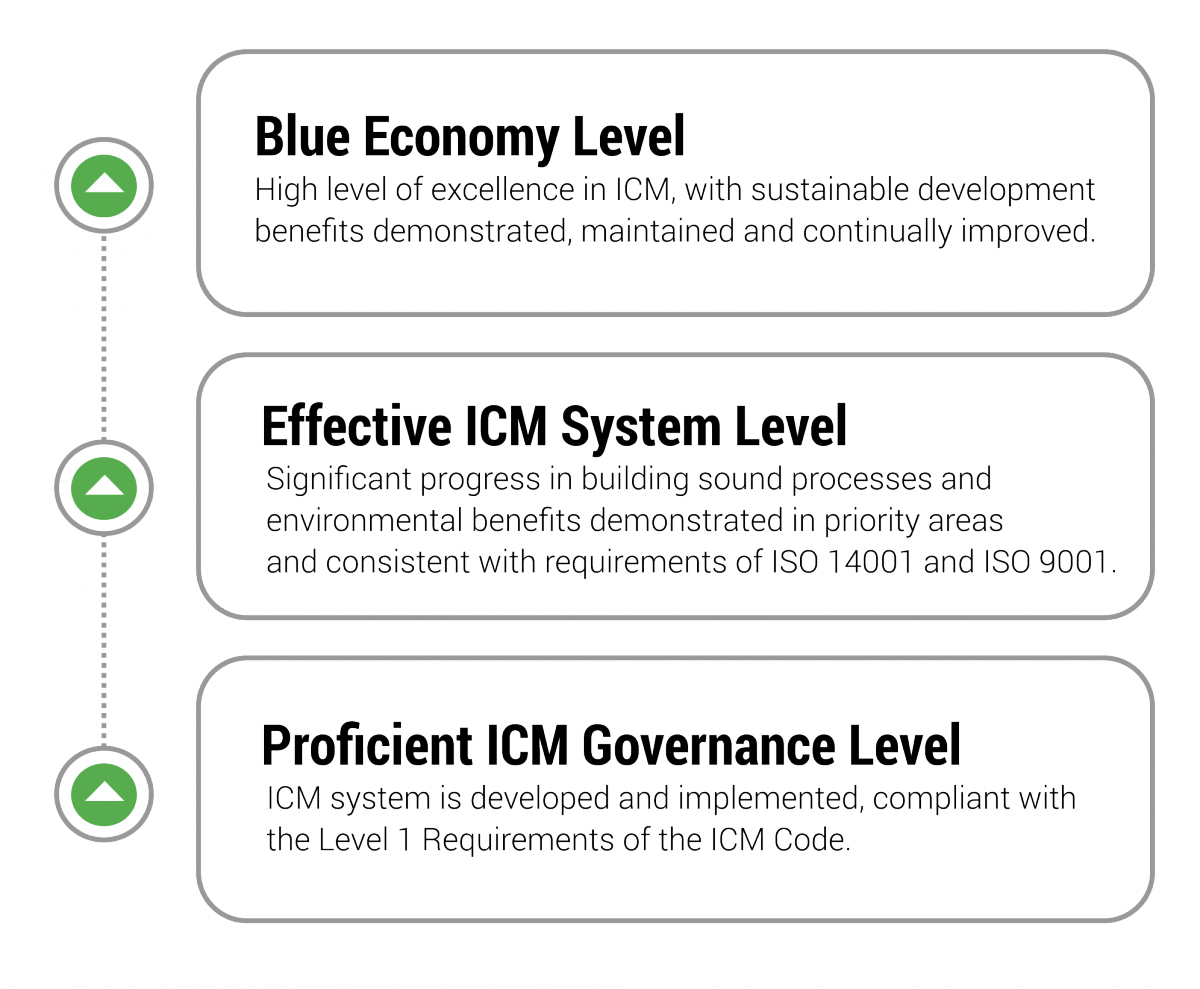
Breadcrumb
ICM System Certification
PEMSEA’s ICM System Certification is designed for local governments seeking validation of their ICM system and recognition for excellence and continuous improvement.
The ICM System Certification formally evaluates and certifies that an ICM System conforms to the requirements of the ICM Code. This may be integrated with other local management requirements to enhance local governance and achieve desired social, economic and environmental goals.
Three levels of certification are available:

To achieve certification, a local government’s ICM system needs to undergo the ICM System Development, Implementation and Continual Improvement Process, which comprises four phases:
- Phase 1: Initial Status Review
This first phase consists of a system review to establish the current status of the existing process and the ICM System being implemented by the local government. - Phase 2: Strategic Planning
In this phase, the scope of the ICM System is determined and the business process is established. Risk assessment is conducted and the objectives, targets and programmes are then established. - Phase 3: System Development and Documentation
This phase involves the establishment of manuals and procedures to facilitate the control of the process and address identified risks. - Phase 4: Monitoring and Measurement
The policy and programmes of the ICM System is implemented progressively during this phase. The planning and conduct of audits and continual improvement of the ICM System is also implemented.
Following ICM System Development, two stages of external audits are conducted as part of the ICM System Certification Process.
- Stage 1 Assessment: System Adequacy Audit
The established ICM System and its documentation are assessed against the ICM Code. - Stage 2 Assessment: Effectiveness of the ICM System Implementation